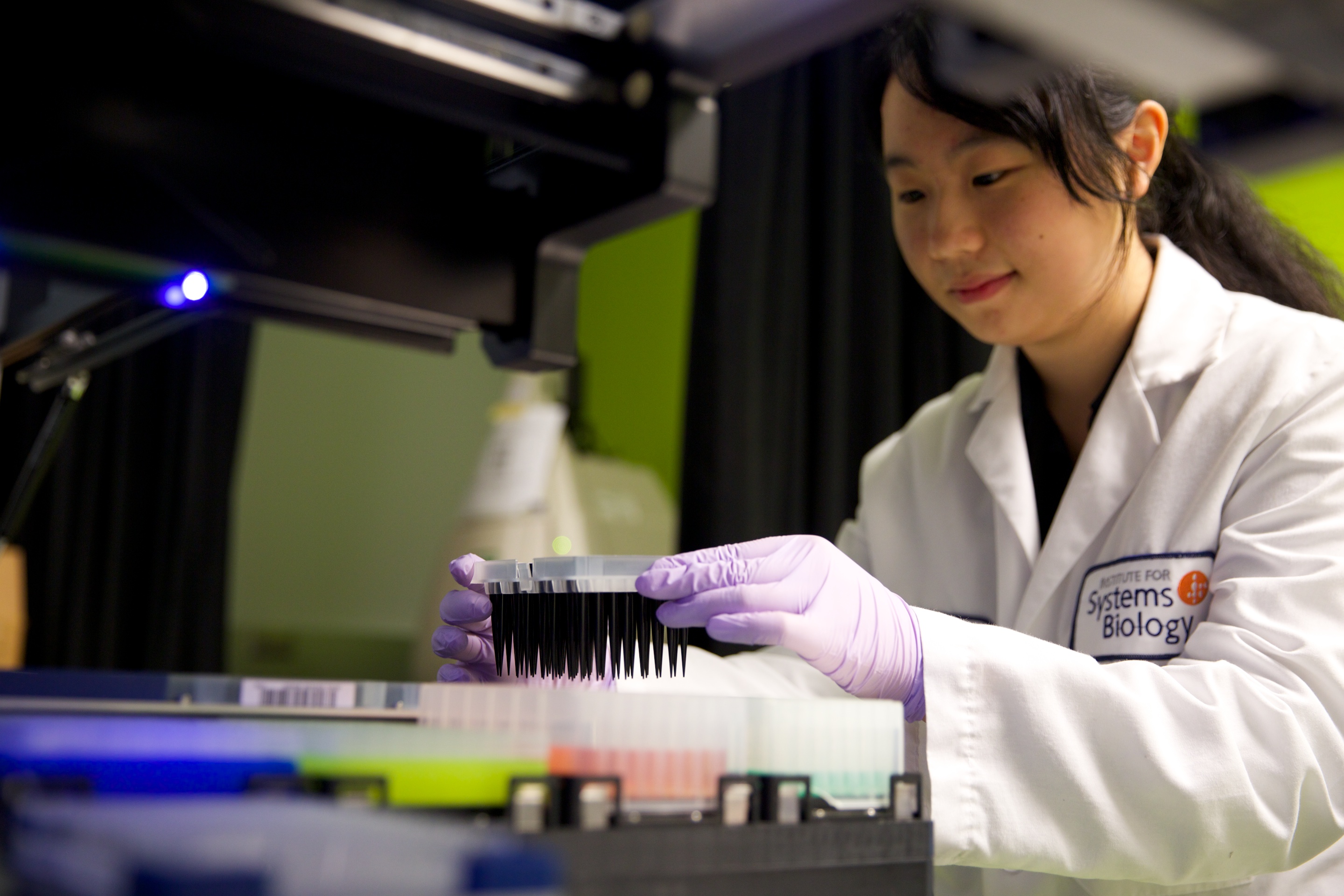ISB Q&A: High School Intern Alex Kuo
 isbscience.org/news/2015/02/23/isb-qa-high-school-intern-alex-kuo/
isbscience.org/news/2015/02/23/isb-qa-high-school-intern-alex-kuo/
Alex Kuo was a high school intern during summer 2014. She reflected on her ISB experience:
Q: What were your first impressions of ISB?
Alex: ISB is a pivotal force in Seattle’s scientific community, especially when it comes to collaboration across multiple disciplines. Given the magnitude and complexities of the research that’s done at ISB, it would seem unlikely that a high school student would be able to participate in any projects. And yet, there we were diving into breakthrough science. The neon green and blue walls were hard to miss, too.
Q: What made you most nervous about working ISB?
Alex: I was one of those students who couldn’t figure out, at first, how to use the keycard to get in the building! I also found myself staring into the crack between the elevator and the floor wondering if anyone had ever dropped a keycard into the abyss.
Q: What qualities of the Baliga Lab high school internship program inspired you the most?
Alex: The program supports the student beyond just providing a roomful of expensive technology. It was valuable to experience the pace and demands of a high-intensity environment, and also to understand the necessity of passion to fuel ambition. ISB is very collaborative in nature unlike many institutes I have visited. I think that this collaborative force encourages the staff to continue to learn on the job.
Q: What did you learn?
Alex: My experiences at ISB mainly encompassed instrumentation and automation. My mentor was Chris Lausted, who’s a senior research engineer. The skills I learned about biotechnological instrumentation and automation I was able to incorporate into an extra-curricular team project focusing on using CAD (computer aided design) to develop a fully functional heart model using mostly 3D-printed materials. At ISB, I also participated in grand-scale projects such as the 100K Wellness Project, and observed various undergraduate projects.
Q: What was the impact of your internship at ISB?
Alex: There are severe limitations related to the standard school curriculum. While textbooks can talk about concepts, there’s an unfortunate disconnect between what’s in a book versus the real-life applications of such concepts. There are few opportunities that open a window for students to experience reality. That makes the summer internship program at ISB even more remarkable. My experience at ISB was one of the most enriching experiences of my life. I believe that internships like what ISB has to offer are imperative for youth. They need this kind of inspiration to drive them to learn and the opportunities to expand their experiences.





